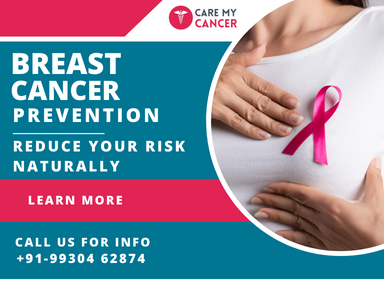Breast cancer is a significant health concern for women worldwide, but there are proactive steps you can take to reduce your risk naturally. By incorporating lifestyle changes, dietary adjustments, and mindful practices, you can empower yourself in the fight against breast cancer.
Introduction
In this article, we delve into effective strategies for breast cancer prevention, focusing on holistic and natural approaches that contribute to overall well-being. Let’s explore how simple lifestyle modifications can make a substantial difference in lowering your risk.
Understanding Breast Cancer
Breast cancer is influenced by various factors, including genetics, age, and lifestyle choices. Understanding the risk factors and recognizing symptoms early are crucial for timely intervention and effective treatment.
Natural Methods for Breast Cancer Prevention
Dietary Considerations
A balanced diet rich in fruits, vegetables, and whole grains provides essential nutrients and antioxidants that support immune function and reduce inflammation—a key factor in cancer prevention.
Lifestyle Modifications
Incorporating regular exercise and avoiding sedentary habits can help regulate hormone levels and maintain a healthy weight, reducing the risk of breast cancer.
Exercise and Physical Activity
Engaging in moderate physical activity, such as brisk walking or yoga, for at least 30 minutes a day can have a protective effect against breast cancer.
Herbal and Nutritional Supplements
Certain supplements, such as vitamin D, omega-3 fatty acids, and green tea extract, have shown promise in reducing breast cancer risk. However, consult with a healthcare professional before starting any supplement regimen.
Environmental Factors
Limiting exposure to environmental toxins like BPA and phthalates from plastics can minimize hormone disruption and lower breast cancer risk.
Stress Reduction Techniques
Chronic stress can weaken the immune system. Practicing mindfulness, meditation, or yoga can alleviate stress and promote emotional well-being.
Regular Screening and Self-Examination
Early detection is key to successful treatment. Schedule regular mammograms and perform monthly breast self-examinations to detect any changes promptly.
Maintaining Healthy Body Weight
Maintaining a healthy weight through balanced nutrition and regular exercise can reduce the risk of breast cancer, especially post-menopause.
Alcohol and Tobacco Consumption
Limit alcohol intake and avoid tobacco products. Both habits are linked to an increased risk of breast cancer.
Supportive Therapies and Resources
Seek out support groups, counseling, and educational resources to navigate the emotional and practical challenges associated with breast cancer prevention and treatment.
Hormonal Balance
Balancing hormones naturally through diet, exercise, and stress management can play a pivotal role in reducing breast cancer risk, particularly for women with hormone-sensitive cancers.
Sleep Hygiene
Quality sleep is essential for overall health. Establish a regular sleep schedule and create a relaxing bedtime routine to optimize restorative sleep.
Breastfeeding
Breastfeeding offers multiple health benefits for both mother and baby, including reducing the risk of breast cancer. Aim to breastfeed exclusively for at least six months if possible.
FAQs (Frequently Asked Questions)
- What are the primary risk factors for breast cancer?
- Family history, age, genetic mutations, and hormonal factors contribute to breast cancer risk.
- Can exercise reduce the risk of breast cancer?
- Yes, regular physical activity can help regulate hormone levels and maintain a healthy weight, lowering the risk of breast cancer.
- Are there specific foods that can help prevent breast cancer?
- Foods rich in antioxidants, such as berries and cruciferous vegetables, may have protective effects against breast cancer.
- How often should I perform breast self-examinations?
- Perform monthly breast self-exams to detect any unusual changes promptly.
- Is there a link between alcohol consumption and breast cancer?
- Yes, excessive alcohol intake is associated with an increased risk of breast cancer.
- What role does stress play in breast cancer risk?
- Chronic stress can weaken the immune system, potentially increasing susceptibility to breast cancer.
Conclusion
Empowering yourself with knowledge and adopting a proactive approach to breast cancer prevention can significantly reduce your risk. By embracing natural strategies and making informed lifestyle choices, you can prioritize your health and well-being.

